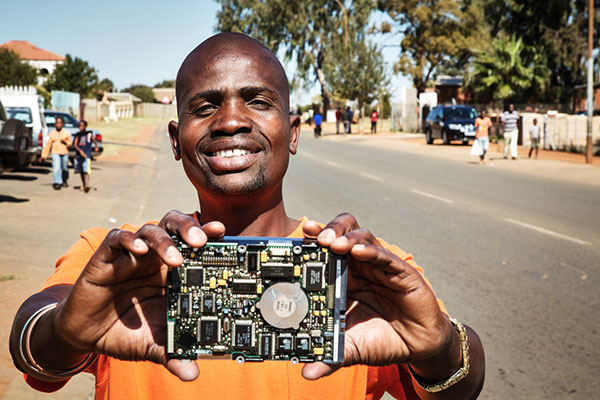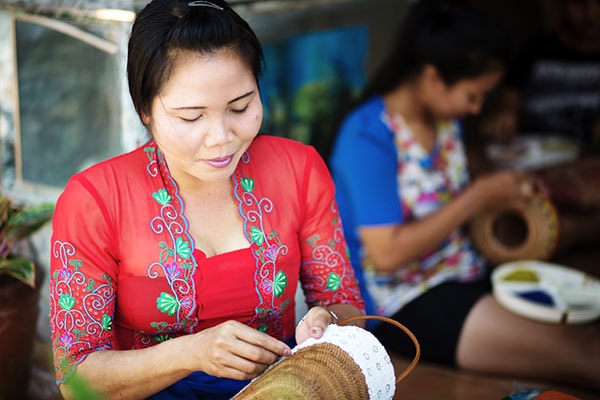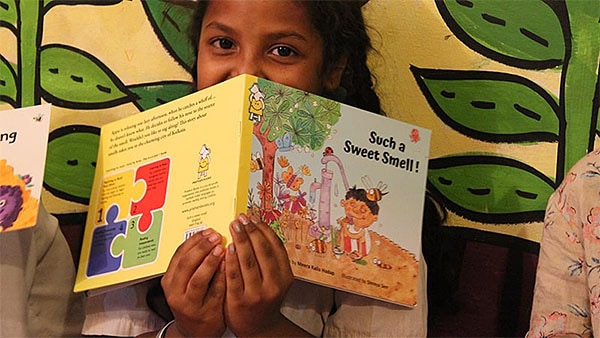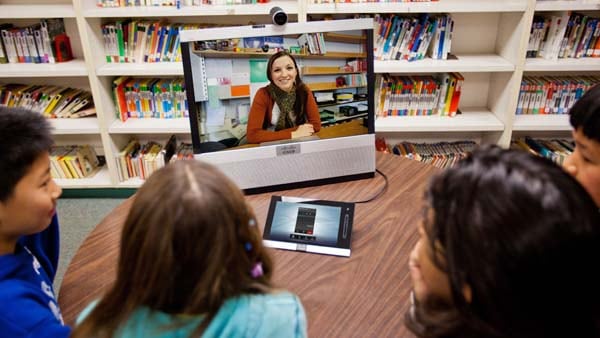
Through strategic investments, we seek to help people overcome the cycle of poverty and dependence and achieve a more sustainable future. Cisco Crisis Response is a program that incorporates shelter, water, food, and disaster relief. We back organizations that successfully address critical needs of underserved communities, because people who have their basic needs met are better equipped to learn and thrive.
What we look for:
- Innovative solutions that increase the capacity of grantees to deliver their products and services more effectively and efficiently
- Design and implementation of web-based tools that increase the availability of, or improve access to, products and services that are necessary for people to survive and thrive
- Programs that increase access to clean water, food, shelter, or disaster relief and promote a more sustainable future for all
Note: By policy, relief campaigns respond to significant natural disaster and humanitarian crises as opposed to those caused by human conflict. Also by policy, our investments in this area do not include healthcare solutions.
Learn more about Cisco Crisis Response
Climate impact and regeneration

Our strategy is to invest US$100 million in Cisco Foundation funds over the next decade to help reverse the impact of climate change, working toward a sustainable and regenerative future for all.
The commitment includes both grant and impact investment funding for early-stage climate innovation. Both categories of support will be focused on bold climate solutions, and the grants side will also concentrate on community education and activation. Grants will go to exceptionally aligned nonprofit organizations, while impact investments will go to highly promising for-profit solutions through the private sector and climate impact funds.
Funding comes from the Cisco Foundation and will focus on:
- Identifying bold and innovative solutions that:
- Draw down the carbon already in the atmosphere
- Regenerate depleted ecosystems and broadly support the transition to a regenerative future
- Developing curricular initiatives to spur community engagement that can lead to measurable behavioral change and collective action
We will prioritize organizations that can achieve, measure, and report outcomes such as:
- Reduction, capture, and/or sequestering of greenhouse gas and carbon emissions
- Increased energy efficiency and improved mapping and management of natural resources, such as ecosystem restoration, forest treatments, reforestation, and afforestation that also will help repair our water cycles
- Transition to inclusive, just, coliberatory, and regenerative operating models, ways of being, and ways of organizing economies
- Creation of, and increase in, access to green jobs and job training
- Changes in community and individual behavior that lead to carbon footprint reduction, community climate resilience, and localized roadmaps to a sustainable shared climate future for all
Whenever possible, we will seek projects that support and are informed by Indigenous Traditional Ecological Knowledge (TEK), Indigenous fire science, decolonized systems theory, and Tribal ways of knowing. These traditional approaches can assist in envisioning and creating viable solutions to issues like forestry and fire risk management. Our hope is to fund hybrid solutions and curricula that combine traditional perspectives with state-of-the-art technology in a way that yields ecosystem restoration while reciprocally benefiting communities as part of our commitment to powering an inclusive future for all.
The following criteria apply only to climate impact and regeneration projects, as deviations from grant policies and criteria for Cisco's other three issue focus areas:
- The Cisco Foundation will selectively consider grant proposals from both public and private universities and fundraising entities connected to such universities—but only for measurement and evaluation of existing grants; and/or assistance with extracting, distilling, and aggregating climate impact metrics (carbon drawdown; citizen behavior change); and/or production of massively scalable climate curricular content for general population offerings.
- The Cisco Foundation will also consider program-related and/or other climate impact investments, including solutions that are commercialized out of research and academic institutions as well as incubators.
- Any grant or investment proposal for consideration must meet the criteria and intended outcomes of the climate impact and regeneration program.
- No part of a grant (or investment) proposal can be used to support the passage of specific legislation, nor for any purpose connected with the business of operations of Cisco Systems, including any exchange of favors or appearance thereof. Strict policy guidelines are in place to help to ensure independence. Also, please review our grant giving policies page.
Explore climate sustainability
Economic empowerment

Our strategy is to invest in early-stage, tech-enabled solutions that provide equitable access to the knowledge, skills, and resources that people need to support themselves and their families toward resilience, independence, and economic security.
Our goal is to support solutions that benefit individuals and families, and that contribute to local community growth and economic development in a sustainable economy.
We target our support in three interconnected areas:
- Skills development to help job seekers secure dignified employment and long-term career pathways in technology or other sectors, including environmental sustainability/green jobs
- Inclusive entrepreneurship with small businesses as engines of local growth as well as high growth–potential startups as large-scale job creators nationally and internationally, in technology or other sectors, including environmental sustainability/green businesses
- Providing access to relevant and affordable financial products and capacity building services
Read more on economic empowerment
Education

Our strategy is to inclusively invest in technology-based solutions that increase equitable access to education while improving student performance, engagement, and career exploration. We support kindergarten through 12th grade (K-12) solutions that emphasize science, technology, engineering, and math (STEM) as well as literacy. We also consider programs that teach environmental sustainability, eliminate barriers to accessing climate change education, and invite student engagement globally to positively affect the environment.
What we look for:
- Innovative early-grade solutions using the internet and technology to bridge the barriers preventing access to education for underserved students globally
- Solutions that positively affect student attendance, attitudes, and behavior while inspiring action by students to improve learning outcomes, whether they participate in person, online, or in blended learning environments
- Solutions with high potential to replicate and scale globally, thereby increasing the availability of evidence-based solutions that support student-centricity, teacher capacity in the classroom, and increased parental participation to help students learn and develop
Note that Cisco does not provide direct funding to nonprofits or schools for the following:
- Sustaining existing programs, interventions, or solutions
- Geographic replication through sponsorships
- Purchasing third-party technology solutions, including, but not limited to, learning management, customer relationship management, or collaboration technologies
- Paying ongoing operational expenses for supplies, equipment, student tuition, scholarship programs, recurring utilities, and salaries of teachers, administrators, and aides
Explore our grant programs
Global Impact Cash Grant Program
Funding to multiply the tech-fueled impact of organizations with national or multinational operations
India Cash Grant Program
Funding for programs that serve the underserved in India by applying technology
Technology Grant Program
Donating Cisco networking technology to help nonprofits make innovative use of the internet



